Cats are creatures of habit, and even small changes can turn your aloof feline into a nervous wreck. You might think you’re being a great pet parent, but these common mistakes could be stressing your cat out more than you realize.
1. Staring Into Their Eyes

In cat language, prolonged eye contact is a challenge, not a sign of affection. According to Nature World News, slow blinking is how cats show trust—so if you’re locking eyes like a creepy stranger, you’re basically threatening them.
Try blinking slowly instead—it’s the feline version of a friendly wave. If your cat blinks back, you’ve just had a conversation in their native tongue. Ignore this, and they’ll spend the next hour side-eyeing you from under the couch.
2. Changing Their Litter Box Too Often

You think you’re being hygienic—your cat thinks you’re destroying their carefully marked territory. Cats rely on scent to feel secure, so scrubbing their litter box with strong chemicals can freak them out.
Instead of deep-cleaning daily, scoop regularly and do a full change only when necessary. Some cats are so particular they’ll boycott a freshly washed box entirely. If your cat starts peeing elsewhere, take the hint—you’ve messed with their bathroom security. Insights from the RSPCA suggest that cats use scent marking to establish comfort and security in their environment.
3. Petting Them Wrong

Not all cats enjoy full-body strokes. Many prefer short, gentle scratches around the cheeks and chin areas where they have scent glands. According to Rover, overstimulation can cause even friendly cats to lash out mid-pet.
Watch for tail twitching or ear flattening—these are signs your cat is seconds from biting. Some cats have a strict “three-pet maximum” before they’re done. Respect their boundaries, or prepare for the consequences.
4. Ignoring Their Body Language
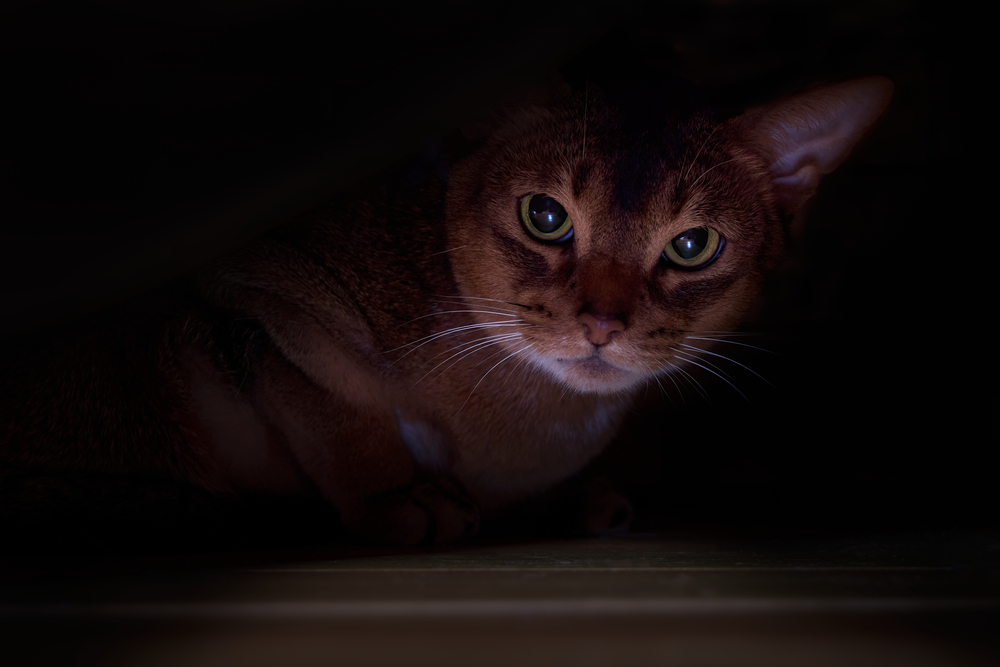
Your cat is constantly communicating—even if you’re not picking up the signals. A flicking tail, flattened ears, dilated pupils, or sudden stillness are all red flags that something’s off. When you miss or ignore these cues, your cat starts to feel unseen and unsafe. It’s not about decoding every movement—it’s about noticing patterns and respecting their boundaries.
Learning to read your cat’s body language builds trust over time. It allows you to adjust your behavior before they feel the need to lash out or retreat. The more tuned in you are, the more relaxed and secure your cat will feel around you. Think of it as learning their unspoken language—and becoming fluent in feline emotional intelligence.
5. Picking Them Up Without Warning

Most cats aren’t fans of being scooped up unexpectedly. It activates their prey instincts and can feel like a loss of control. When you lift a cat without reading their mood first, it can create anxiety and erode trust. Even affectionate cats have moments where they’d rather stay grounded.
Always approach slowly and check their body language before reaching out. Support their body fully if you do lift them, and never grab from above. Let them come to you if they’re in the mood for closeness. Respecting their autonomy helps them feel safe—and safe cats are happy cats.
6. Moving Their Stuff Around
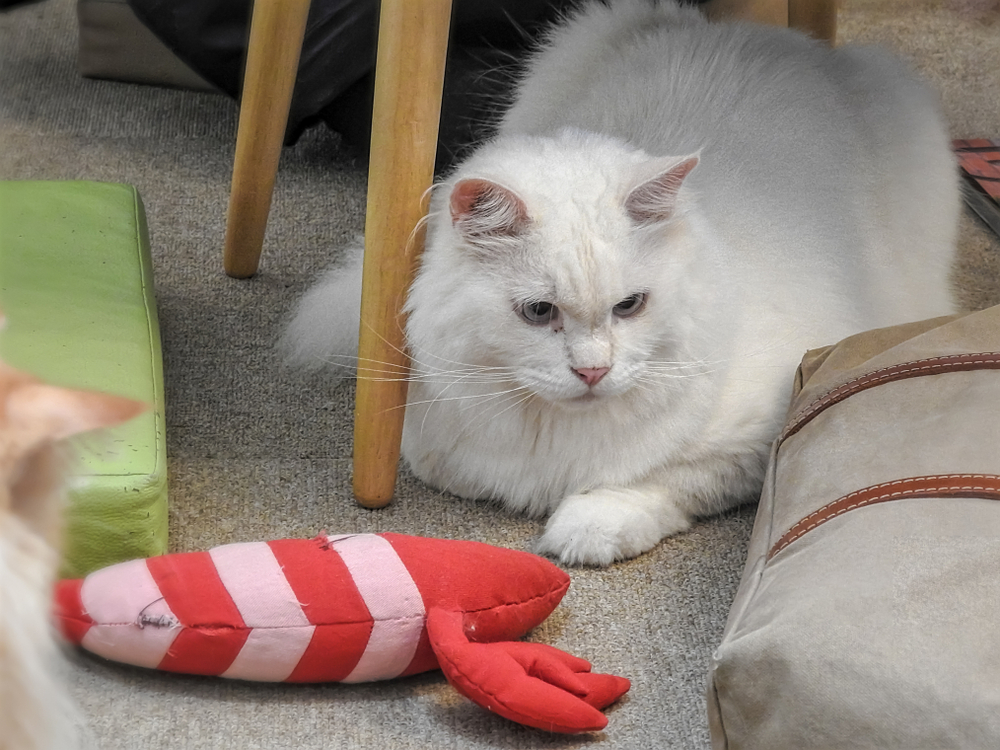
Cats are creatures of habit who map their environment through memory and scent. When you suddenly move their bed, food bowls, or scratching post, it can throw off their entire sense of security. What feels like harmless redecorating to you can feel like territory upheaval to them. Some cats may even respond with stress behaviors like hiding or refusing to eat.
If you need to make changes, do it gradually. Keep familiar items nearby and allow your cat time to adjust. Give them access to the space to explore at their own pace. Stability in their environment builds stability in their behavior.
7. Playing With Them at the Wrong Time
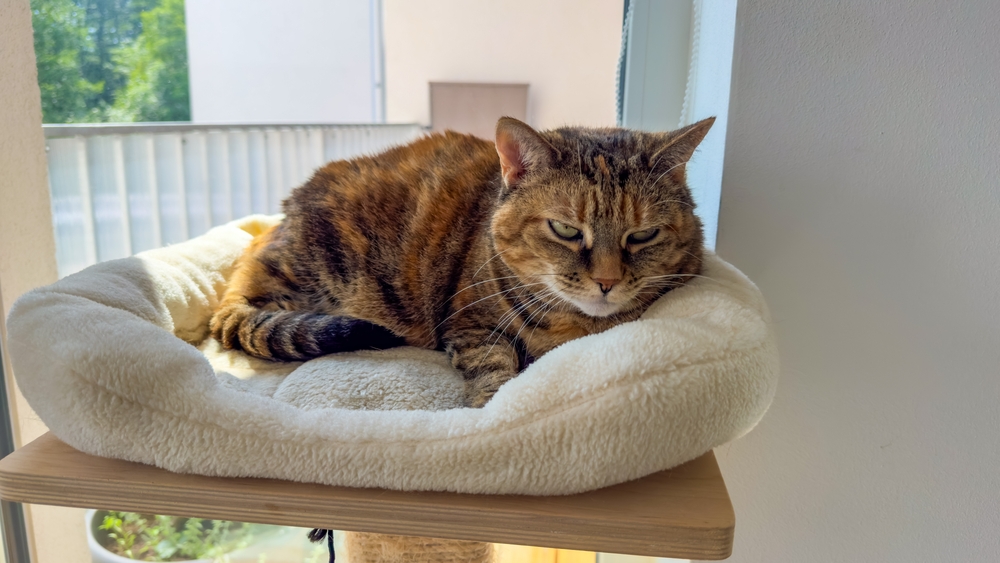
Cats love to play—but timing is everything. Initiating a game while they’re grooming, napping, or winding down can feel intrusive, not fun. It may even result in a swat or total disinterest. Playtime is about connection, not just entertainment.
Pay attention to their energy cues—zoomies, chirps, tail flicks—and let them set the pace. Short, interactive sessions are more effective than forcing it. When you respect their rhythms, play becomes enriching rather than irritating. It’s less about quantity and more about quality.
8. Closing Doors on Them
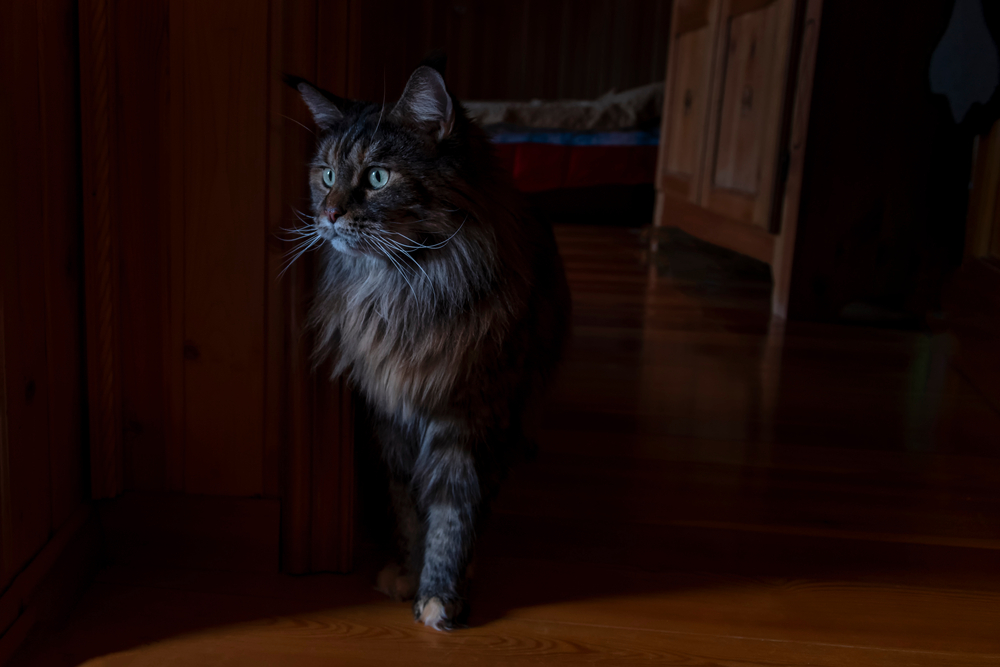
Cats have an almost obsessive need to investigate closed doors. It’s not just curiosity—it’s about territory and control. When you shut them out, it can trigger frustration, vocalization, or destructive behaviors. They want to know what’s behind the door because it’s part of *their* space.
Instead of locking them out, try leaving doors cracked or providing alternate cozy zones. Giving them access helps reduce their need to “fight” for it. If you do need to close a door, distract them with a perch or toy elsewhere. A little redirection goes a long way with these strong-willed roommates.
9. Using Strong-Scented Products
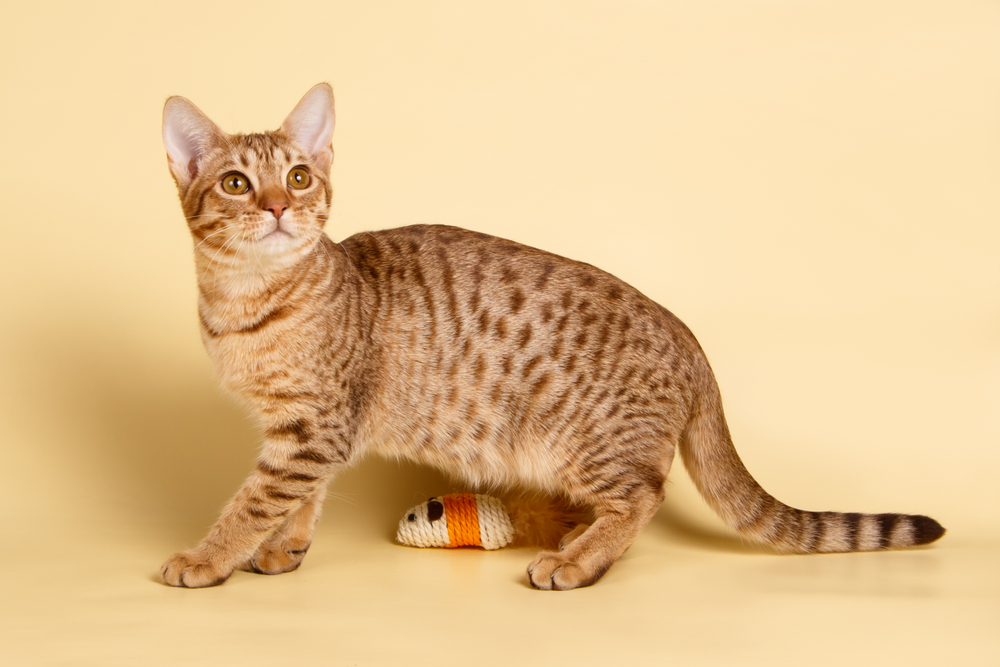
What smells pleasant to you can be overwhelming to your cat’s sensitive nose. Candles, diffusers, and cleaning sprays can make their environment feel toxic—even if it’s safe for humans. In some cases, essential oils like tea tree or citrus can even be harmful. It’s not about having a scentless home—it’s about moderation and safety.
Choose unscented or pet-safe products whenever possible. Ventilate well after cleaning and avoid spraying near their favorite spots. If your cat avoids certain areas after you’ve cleaned or lit a candle, take the hint. Less fragrance means less feline stress.
10. Playing Loud Music or TV All Day
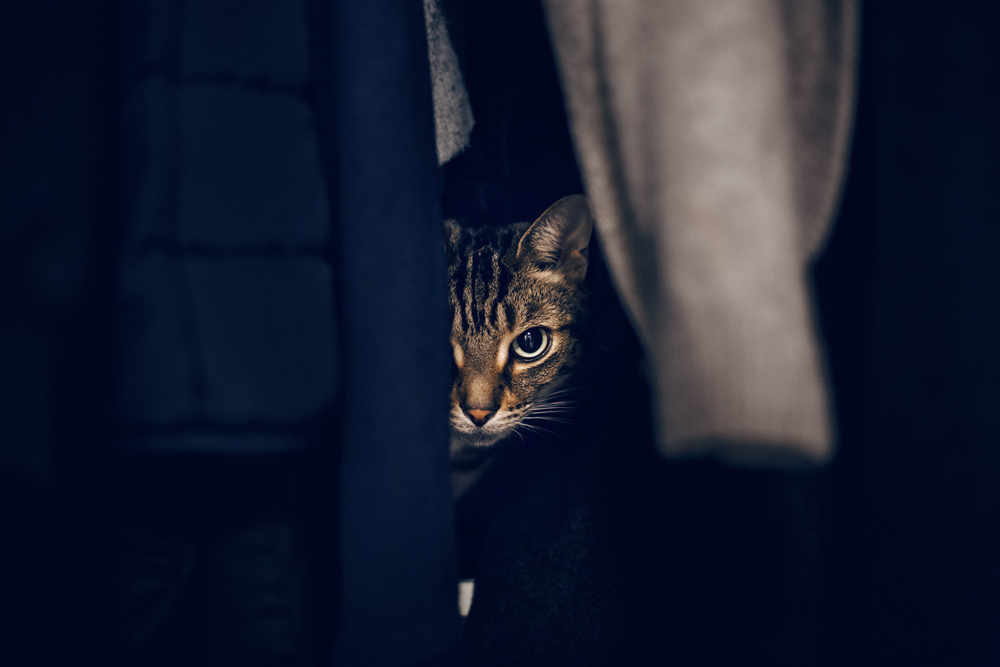
Cats hear at a much higher frequency than humans, which makes loud or constant noise exhausting. Leaving the TV on for background noise might comfort you, but it can overstimulate them—especially if it’s filled with sudden bangs or shouting. Your cat needs quiet periods to feel truly relaxed. Over time, excessive noise can make them jumpy or withdrawn.
Instead of blasting sound all day, opt for silence or soft ambient sounds. If you want to leave something on, try classical music or a video made specifically for cats. Give them the option to escape to a quieter room if they want to. Respecting their sensory needs makes your home feel safer and calmer.
11. Skipping Routine Vet Visits

Many cats seem fine even when they’re not—because they instinctively hide discomfort. Skipping vet visits might spare them a stressful car ride, but it can also let silent health issues spiral. From dental disease to thyroid imbalances, cats need regular checkups just like we do. Early detection can prevent pain and long-term complications.
Choose a cat-friendly clinic and make visits part of their normal routine. Use calming carriers and treats to ease the process. It’s not just about prevention—it’s about protection. A healthy cat is a happier, more relaxed one.
12. Letting Boredom Build
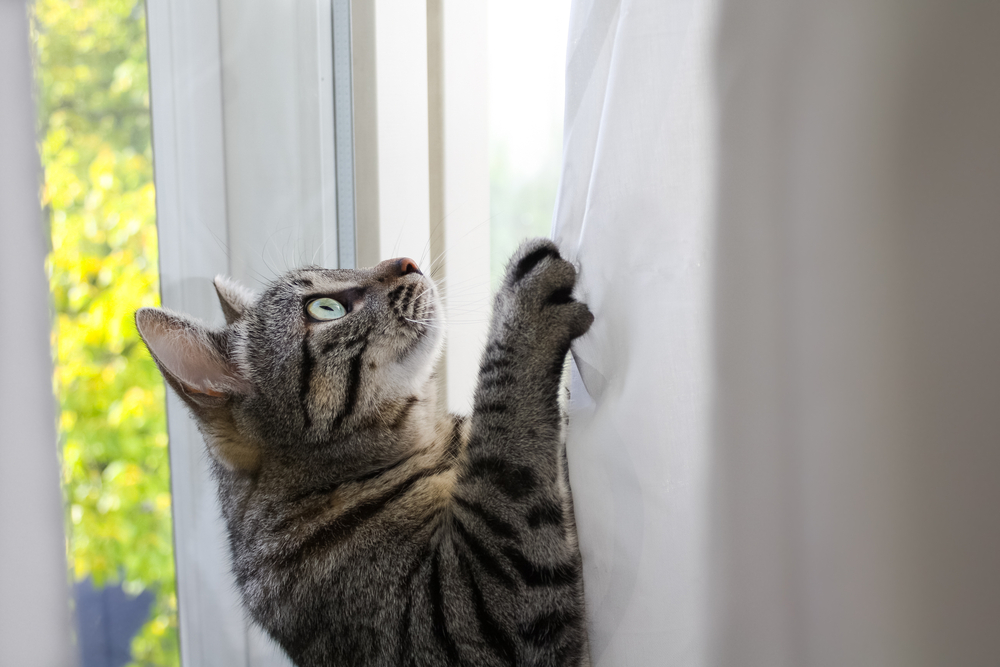
Indoor cats may be safe, but they’re not always stimulated. Without enough play or engagement, boredom turns into stress—and stress leads to bad behavior. Scratching furniture, yowling at night, or pouncing your ankles might just be cries for stimulation. Mental activity is just as important as physical space.
Make playtime part of your daily routine, even if it’s just 10 minutes. Rotate toys and add puzzle feeders to keep things fresh. Window perches and bird videos can help satisfy their prey drive. A busy cat is a balanced cat.
13. Leaving Food Out All Day
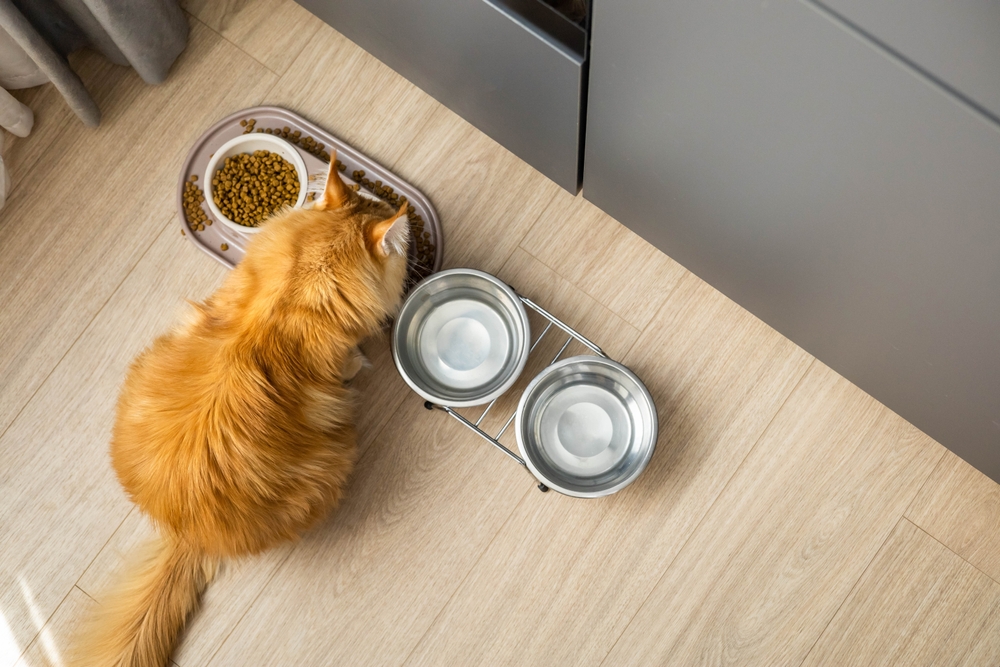
Free-feeding can seem convenient, but it disrupts your cat’s natural rhythm. Without structure, some cats overeat out of boredom, while others lose interest entirely. It also removes the bonding ritual of scheduled mealtimes. And stale kibble? Not exactly fine dining.
Set regular feeding times to create predictability and trust. It also gives you a chance to monitor their appetite, which can signal health issues. When food feels consistent and rewarding, your cat feels more secure. And less likely to scream for snacks at 4 a.m.
14. Expecting Them to Act Like a Dog

Cats aren’t small dogs—and expecting them to behave like one sets everyone up for frustration. They’re independent, observant, and much more likely to say “no thanks” to commands. Pushing obedience or forced affection can make your cat feel disrespected and stressed. The more you ignore their true nature, the more distant they become.
Instead of trying to change them, meet them where they are. Let them come to you. Learn what they consider affection—and follow their lead. That’s when the bond deepens, and your cat starts trusting you fully.
